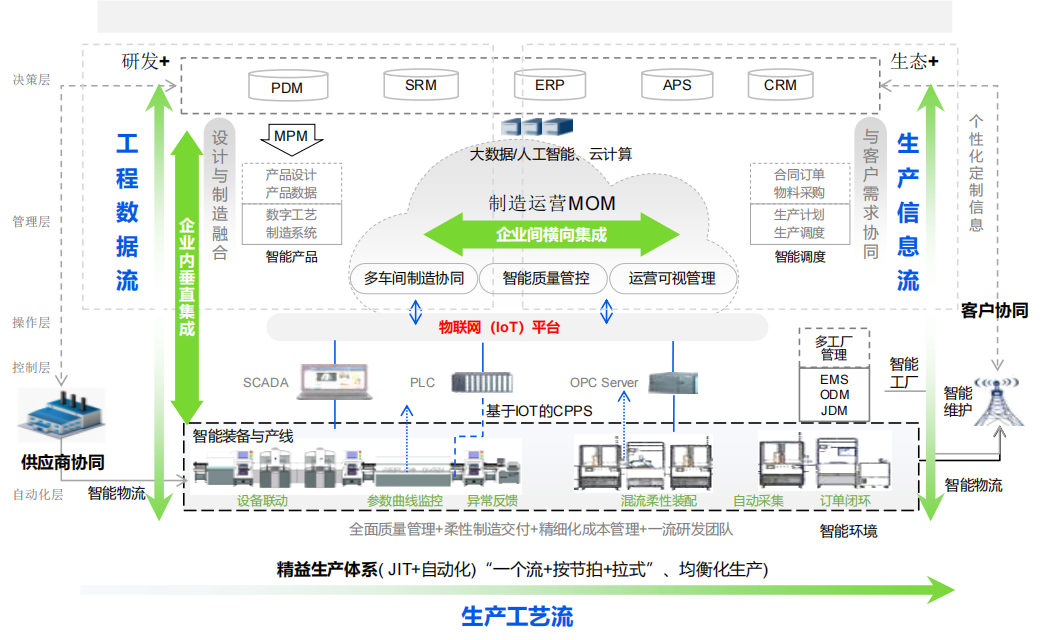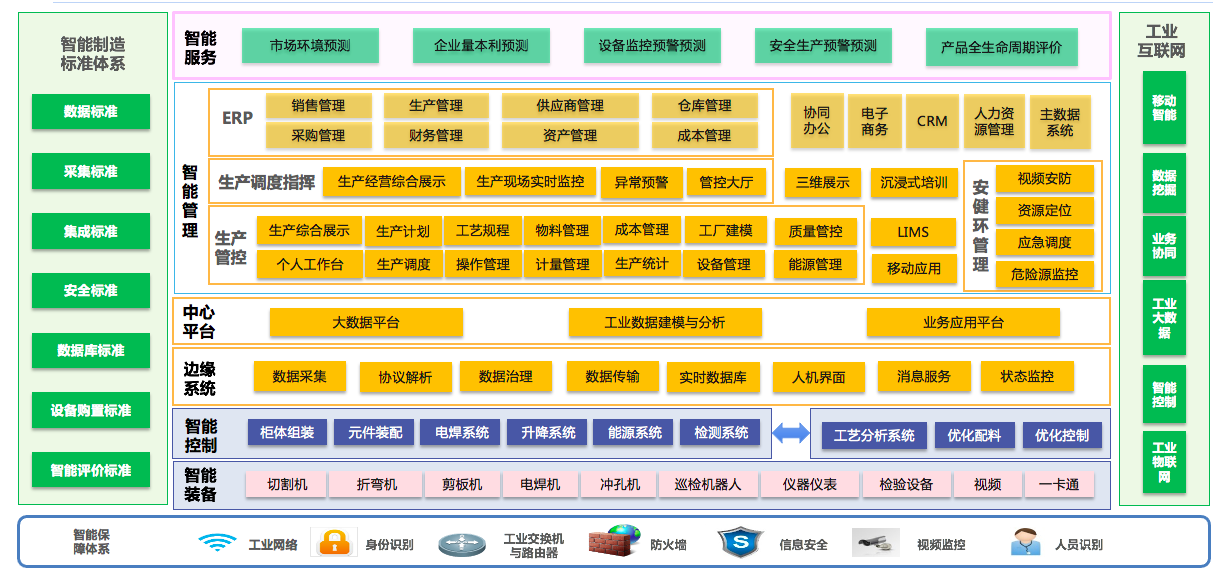

Aviation, assembly, semiconductors, electric power equipment R&D and manufacturing, food and health industries

The Manufacturing Execution System (MES) is one of the key technologies to realize factory intelligence and digitalization. The MES provides real-time monitoring, control and management for the manufacturing processes by integrating advanced information technologies such as service-oriented architecture (SOA), distributed computing, etc. The MES can accurately track production progress, monitor equipment status, optimize resource allocation, and ensure that production activities are in line with production plans.
Currently, the MES is evolving towards higher levels of stability, modularity, standardization and scalability to adapt to changing market demands and production environments. The implementation of the MES can not only improve the efficiency of a single production line, but also promote the synergy of the entire supply chain and enhance the ability of enterprises to respond to market changes. By deepening the integration and application of the MES, enterprises can more effectively promote the optimization of production processes, achieve cost control, improve product quality, and ultimately achieve the goal of improving market competitiveness and customer satisfaction.

1. Digital transformation of on-site equipment: The MES realizes the full digitalization of factory equipment through the Internet of Things (IoT) platform. By using sensors and machine interfaces, equipment status, operating data, and performance indicators can be collected in real time and uploaded to the cloud platform. Based on cloud-edge collaboration capabilities, the MES can not only monitor equipment operation in real time but also enable intelligent early warning and remote maintenance, reducing equipment downtime and increasing equipment efficiency and lifespan. In addition, through the IoT platform, the MES can also realize intelligent linkage between equipment, optimize production processes, reduce human intervention, and improve the automation level of production lines.
2. Enterprise-level industrial Internet platform: As the core of the industrial Internet platform, the MES integrates enterprise resource planning (ERP), warehouse management system (WMS), advanced planning scheduling (APS) and other systems through a manufacturing mid-platform. This integration approach breaks down the information silos within the enterprise, enabling the seamless flow of data and real-time processing. Through a unified data platform, the MES can provide enterprises with a comprehensive view of production management, including order execution, inventory status, material demands, etc., to help enterprises make more accurate decisions. At the same time, the real-time data processing capability also greatly improves the speed of response to market changes, enhancing the competitiveness of enterprises.
3. Digital intelligent workshop: The MES transforms traditional manufacturing into intelligent manufacturing through the construction of digital intelligent workshops. At the workshop level, the MES achieves full networking of equipment, optimizes production processes through automated scheduling and material coordination, and reduces production waiting and material waste. The MES can also dynamically adjust the production plan according to real-time production data, so as to respond to rush orders or production changes, improving production flexibility and adaptability. In addition, the MES can also provide detailed production reports and analysis to help enterprises identify production bottlenecks, continuously improve production processes, and improve production efficiency.



Social value: The MES improves equipment and resource utilization, promotes energy conservation and environmental protection, and serves as a model for encouraging other enterprises to "go to the cloud", playing a demonstration role.
Industry value: The MES enables transparency and digitization of the production process by monitoring and managing the production activities of the plant in real time. The MES integrates key information such as machine data, production progress, quality control and resource allocation, enabling enterprises to respond to production changes in real time and optimize production scheduling. The MES also supports advanced data analysis, reduces equipment failures through predictive maintenance, and reduces waste of resources through fine management, thereby improving production efficiency and product quality. Additionally, the MES promotes seamless integration of internal information flows, enhances supply chain collaboration, and strengthens responsiveness to the market, providing strong support for enterprises in the competitive market landscape.
Customer value: The MES addresses issues such as delayed production information feedback and difficulties in data collection, thereby improving production efficiency.

Process specification standard management: The MES can compile production processes, attached drawings, images, process cards, assembly drawings, and more, and it can also automatically download data from external ERP and PLM systems.
Job adjustment and scheduling: The MES can set constraints according to the planning mode, sort the work orders for production, and allow some orders to be changed. At the same time, the MES can manage situations such as rush orders and expedited orders.
Product/line logistics tracking: The MES uses barcodes, RFID, DPM codes and other means to track the logistics of products, allowing for understanding of the status of in-process products in real time.
Quality control, analysis and monitoring: The MES compares with standard processes to prevent errors and omissions during production, reports and handles quality issues, and generates various quality control reports.
Equipment status monitoring:The MESm uses the DNC module to monitor equipment operation status and processing history in real-time, thereby generating analysis on equipment utilization.

Baozhuang Technology Digital Workshop Project
Guangte Electric Digital Intelligent Workshop Project
Motor Enterprise-Level Industrial Internet Platform Construction Project